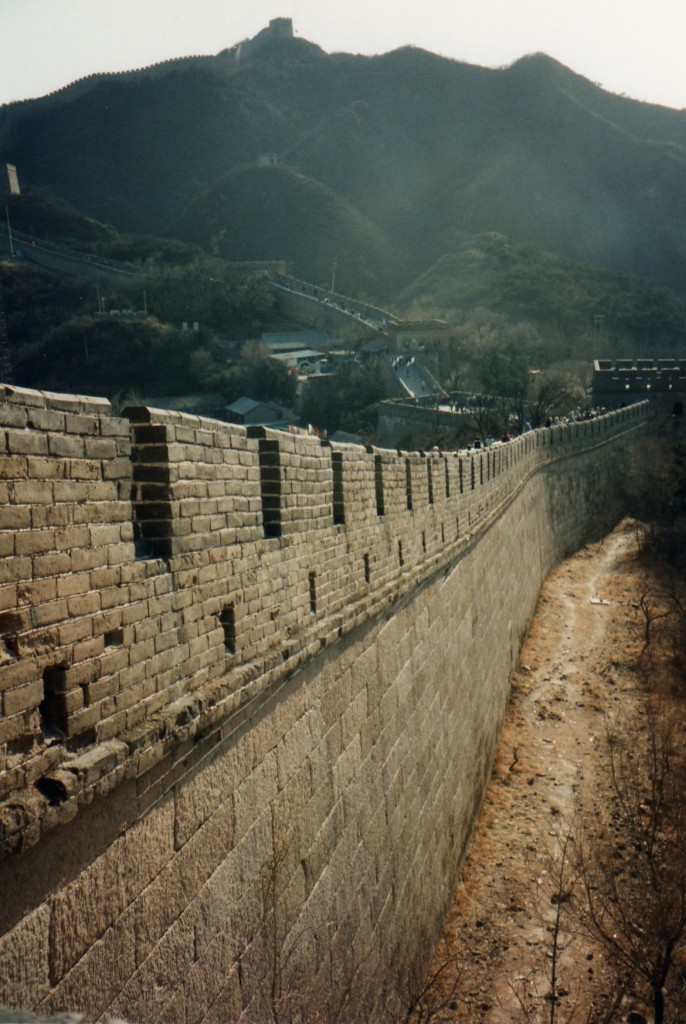Viewpoint – Censorship: Against a Brick Wall, The Internet in China
A study by Harvard University released this month reveals that China’s Internet Censor’s new focus is on topics that might incite protest in the country.
Citing examples that two of the most censored topics concerned protests in China’s Inner Mongolia region and in Zengcheng. The study showed that in both cases local inhabitants of the area clashed with the authorities. This is an interesting development because The ‘Great Firewall of China’, a censorship and surveillance project which began to operate in November 2003 recently did a u-turn on blocked keywords such as “Free Tibet”, “Democracy” and “Tiananmen Square which were originally censored when searched on Google China. The latter having such a crackdown on it in 1989 that even image results on Google China showed no sign of the protest, unlike that on Google UK.
In the UK it is no secret that there is generally a free flow of information and this is the internet that we all know, love, and use. One where we can all look forward to putting our feet up and having a good unlimited surf on it when we have a spare minute or two. Undoubtedly, Facebook is our first point of interest, followed by Twitter and perhaps Youtube. We may even write a blog post or two about our day.
If those unlimited privileges were not available it would, as we understand it, perhaps defeat the purpose and this is the internet of China. The government ensures that the web acts as The Great wall itself, aware of every incoming or outgoing activity. Such is its control, you cannot say, read, or access anything on the web without it being monitored by the Chinese government and its “internet police”. Ultimately, it is internet censorship at its peak.
The country which is believed to be the place where internet repression is more extensive than anywhere else in the world has also blocked major international sites like Facebook and Blogspot. Consequently, it ensures that any type of communication with the outside world is lifeless.
Timothy Wan, a 20 year old student studying international hospitality management at the University of Surrey has nothing but sympathy for the people of China. Whilst he originates from an unaffected Hong Kong, he has many friends in the region whom have no choice but to abide by the law. He said: “I feel sad for my fellow brothers in China, simply because they cannot actually communicate with other people on these social media websites that are indeed used all around the world. They are exempt from socialising. To me, it’s like the young school kid in the playground who is unable to fit it with everybody else. It’s very unfair.”
The student from Surrey continues: “It is definitely an unfair protocol especially as the internet is made as a free place. It should therefore mean that anybody has the right to search anything they’d like to.”
As China’s censorship of the internet strengthens, it now believed by many that the government will not be too quick to loosen any of its controls. It is a censorship machine which has become a part of the country. City University student Pierre Cheung who studies investment and financial risk management believes that over time, the Chinese government could have a potential fight on their hands. The 20 year old who visited China last August said: “I think they will abide by it, but after a certain amount of time, there will be some repercussions facing the government. As Facebook and other social networks grow, more and more people will want access to it, especially as now, Facebook is what people use to talk rather than face to face.”
Timothy however, believes a backlash would not even come into question. He said: “I’m not really sure of the repercussion because I think the Chinese people are very obedient, and they are not the kind of people who are likely to revolt.”


























